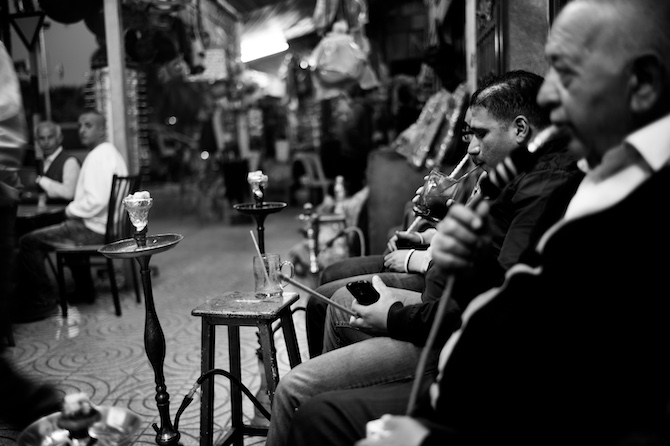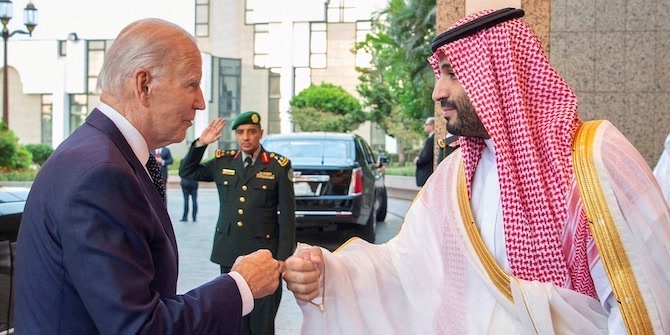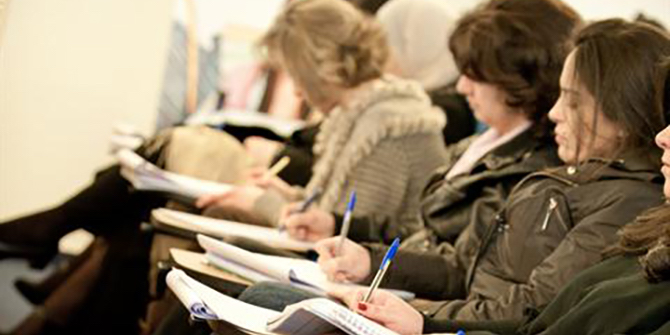by Amira Mahmoud Othman

‘If the [cash transfer] programme stops, I have no reason to live anymore. I keep a bottle of poison on the top of my closet and I think of drinking it if things get worse’
– 80-year-old cash transfer beneficiary, Jenin, West Bank, 2016.
In light of the COVID-19 pandemic and subsequent development-related policy interventions, this contribution asks: what does it mean to be ‘well’? Drawing on policy-making, development economics, mental health studies and feminist literature, this piece explores concepts of ‘health,’ ‘social protection,’ and ‘well-being.’ Beginning with the understanding that ‘there is no health without mental health,’ it assesses the relationship between social protection and wellbeing, COVID-19-induced stressors and coping mechanisms, as well as the problematic language of ‘crisis’ to draw attention to what may come next.
Social Protection, Wellbeing and Poverty
Wellness is difficult to capture, quantify and measure. Compared to income levels, nutrition indicators, or education progress, such a relatively ‘fluffy’ concept is usually situated at the margins of development literature. Yet, there is a small but growing literature on COVID-19’s effects on mental health and psychosocial wellbeing that, unsurprisingly, highlights the associated increased psychological distress. Labelled ‘an anxiety pandemic,’ anxiety is foremost among the emotions triggered by COVID-19, along with increased depression, exhaustion, nervousness, loneliness and anger. Studies that explored wellbeing under lockdown found ‘acute panic … obsessive behaviors, hoarding, paranoia, depression, and post-traumatic stress disorder’ among students in developed countries.
In ‘developing countries,’ where widespread poverty is closely linked to not being well, governments have introduced emergency social protection policies to ease COVID-19-related economic shocks (including sudden drops in income, exacerbated economic disparity and increased socio-economic precarity). The International Labor Organization has developed a Rapid Social Protection Calculator, over 58 countries have extended the coverage of existing benefits, and more than 121 have introduced new benefits for vulnerable groups. Theoretically, this is encouraging: there are a raft of studies on the positive effects of cash transfers on wellbeing. For example, two years after the Ebola outbreak, survivor wellbeing was attributed to emergency cash transfers in Sierra Leone. In Kenya, cash transfer beneficiaries were 24 percent less likely to develop depression, and a half-point difference (on a 30-point scale) was recorded among cash transfer beneficiaries in South Africa.
In this context, cash transfers ideally offer three relief mechanisms: first, by covering basic needs (i.e. food, shelter); second, by allowing for post-COVID-19 recovery; third, by protecting from similar future shocks, all of which contribute to wellbeing. However, cash transfer strategies to combat COVID-19 are insufficient. In terms of the basic needs component, a recent study by the Egyptian Central Agency for Public Mobilization and Statistics found that 92.5% of families have actually replaced their regular food intake with cheaper food items, with 36% decreasing food rations per meal and 20% reducing the number of daily meals. Since 73.5% of respondents experienced a drop in income and 26.2% of them lost their jobs entirely, it seems that the amount offered as transfers represented only a fraction of the lost income, and was thus insufficient to even cover food expenses. As such, 33% of respondents stated that they have been unable to meet their basic needs since the start of the pandemic. Women and children are the first to reduce their food intake in response to food insecurity.
Regarding the post-COVID-19 recovery, there is actually a risk that ‘expansionary fiscal and social protection responses to a severe crisis are followed by austerity policies that are detrimental to child well-being.’ Furthermore, allocating resources based on poverty testing may also be invalid as the correlates of poverty themselves have changed, creating a ‘missing middle’ that would be unaccounted for in future social protection policies. As for protection from sudden poverty-inducing shocks in the future, social protection allocation is likely to be susceptible to cutbacks once the worldwide COVID-19 crisis is declared over, especially with the expected financial austerity measures to control budget deficits and consolidate debts.
COVID-19 Stressors and Coping Mechanisms
Looking at the more timely stressors, confinement under lockdowns correlates strongly with increases in domestic violence. Also, UNICEF has warned against the pandemic ‘turning into a crisis of child protection,’ as children are likely to become annoyed and impatient in dealing with the stay-at-home orders, with possible violent responses at home. Stressors including the lack of personal space at home and face-to-face contact with friends or teachers may even cause ‘prolonged adverse mental consequences in children.’ Previous health-related emergencies have also revealed, among other things, the gender-based violence girls and women endure. The anxiety build-up aggravates domestic violence, which is unfortunately exacerbated by women losing their jobs (as they represent a higher percentage of the informal workforce), lacking assets/resources and being responsible for added house/care work. Ironically, having additional care responsibilities (towards children, parents, in-laws, and sick relatives or neighbours) in addition to COVID-19-related stressors puts women under disproportionate pressure.
However, from an intersectional perspective, coping strategies to deal with additional stressors are uneven among genders. To handle feeling powerless, especially when asked for cash they do not have, men in Yemen and Palestine reported ‘resorting to alcohol, drugs, and smoking.’ Some feminist pieces rationalise such ‘unhealthy behaviours’ on the bases of resource scarcity, stress and diminished self-regulation – all of which tend to favour immediate luxuries/rewards, like smoking or buying luxury goods. Yet, as the photograph above further illustrates, normative presence (and smoking) in public spaces is a gender-limited luxury, further delineated by rural/urban context. Since coping with stressors is integral to wellbeing, studies should evaluate coping mechanisms along gender lines.
On the Problem of ‘Emergency’ Language
With headlines announcing ‘the deepest economic downturn since the Second World War,’ expectations of pushing ‘an additional 140 million into extreme poverty’ and causing ‘the first recession in the [African] region over the past 25 years,’ it is important to consider the subtle effects of ‘crisis’ terminology. Crisis language may cause symbolic violence, as the very terms ‘pandemic’ or ‘outbreak’ create the illusion that social suffering ends with the eradication of the virus. But, as Georgio Agamben reminds us, what seems to be a state of exception (i.e. COVID-19) isn’t necessarily so. As such, once a vaccine is developed, social protection spending is susceptible to cutbacks once the emergency associated with the pathogen ends, despite the existing and worsening entrenched poverty that accompanies such episodes. Another example is how millions of dollars of aid dried up in West Africa when the Ebola crisis ended. Hence the problem with these immediate interventions is how, in developing countries, the economic aftermath of the pandemic is arguably more severe than the virus itself. In fact, as we wash our hands to the tune of ‘Happy Birthday’, 40 percent of the world’s population don’t even have handwashing facilities at home – a material reality that is likely to continue post-COVID-19.
Wellbeing isn’t a ‘fluffy,’ marginal concept. Rather, it is part and parcel of health, life, and the everyday. Under COVID-19, it should be aptly brought to the forefront of economic thinking and development interventions. Although the concept may be unquantifiable, the bottle of poison on the 80-year-old Jenin man’s closet invites and deserves much more reflection on uncertainty, life precarity, dependency, meaning and wellbeing.
This blog is part of the LSE Academic Collaboration with Arab Universities project, in collaboration with the American University in Cairo, ‘Can Social Protection Empower Women? Patriarchy, Economic Agency and Redistribution Policies in Egypt’.







As much as I got impressed by the huge post covid economic expectations I got astonished by the author ‘s simplistic way of clarifying the matter
Thanks 🙏🏻